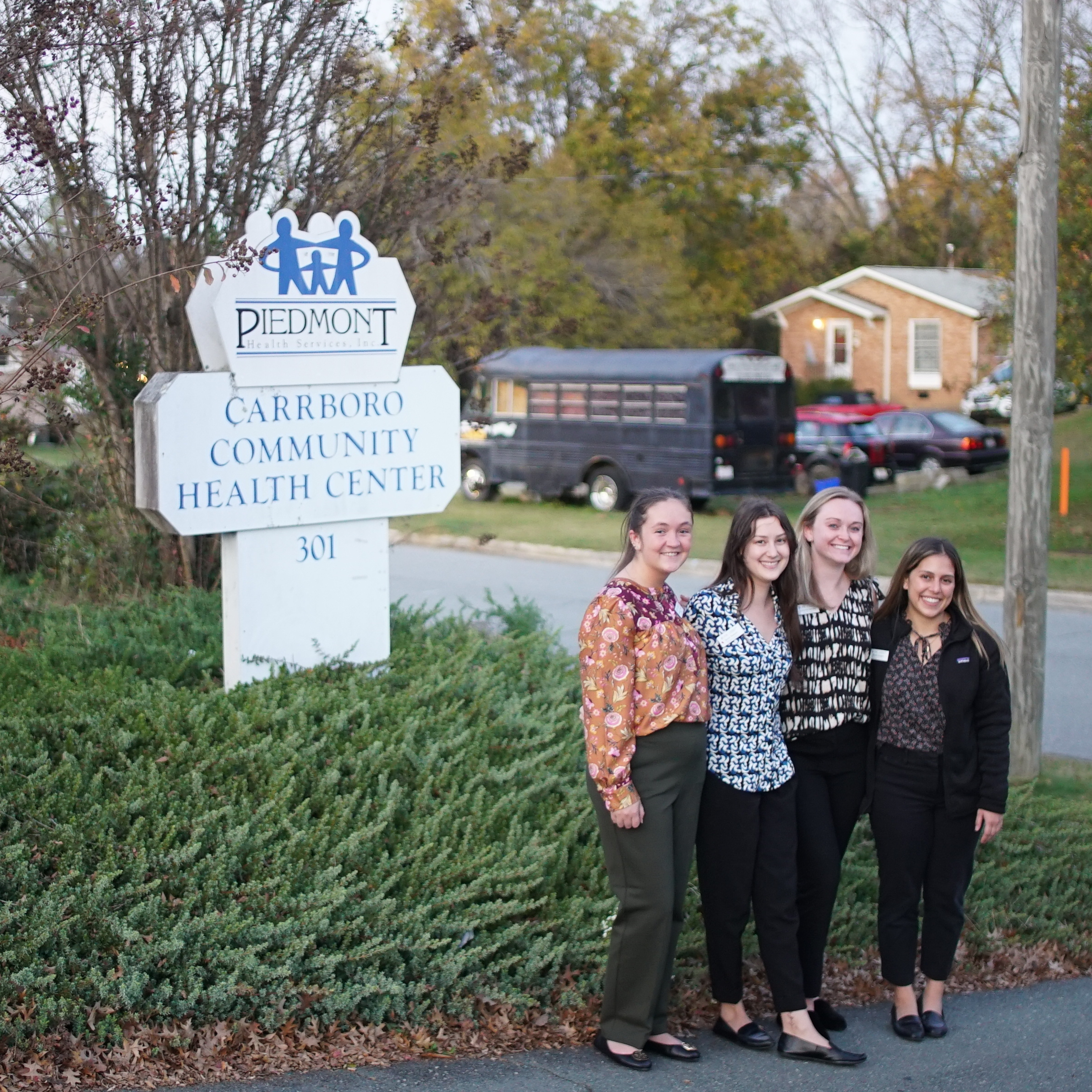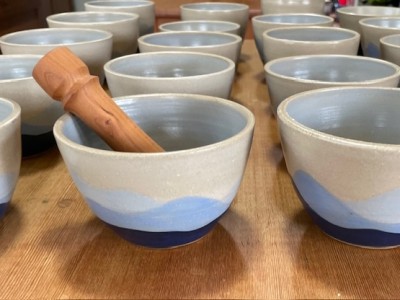June 19, 2023

 UNC Eshelman School of Pharmacy students are helping improve health outcomes for underserved members of North Carolina communities through the Student Health Action Coalition (SHAC), which gives students the opportunity to provide care for vulnerable, underinsured, uninsured, as well as homeless patients.
UNC Eshelman School of Pharmacy students are helping improve health outcomes for underserved members of North Carolina communities through the Student Health Action Coalition (SHAC), which gives students the opportunity to provide care for vulnerable, underinsured, uninsured, as well as homeless patients.
SHAC is an award-winning organization that previously won the national Student Community Engaged Service Award from the American Association of Colleges of Pharmacy (AACP). For the past 50 years, SHAC has served as a health care resource for the Chapel Hill, Carrboro and Durham communities. It is the premier interprofessional student-run free health care organization and has inspired other student-run clinic models across the United States.
“SHAC is a rare organization that benefits all stakeholders involved; student professionals refine their clinical, interpersonal and interprofessional skills, patients have access to care they might not be able to otherwise receive, and preceptors engage in educating the next generation of health care professionals and giving back to the community,” said Margaux Meilhac, Pharm.D. candidate class of 2025 and current SHAC pharmacy coordinator.
SHAC has experienced tremendous growth since its inception, and now encompasses over a dozen specialty services in addition to the traditional student-led acute care medical clinic. With its expansion, the organization has remained loyal to the mission of providing free care to uninsured or underinsured individuals of the community, partnering with communities to create sustainable programs and promoting interprofessional education.
The coalition includes students from a variety of health professional programs at Carolina, including but not limited to medicine, dentistry, social work, nursing, physical therapy, ophthalmology and of course, pharmacy.
One branch of SHAC, called SHAC Outreach, is a completely pharmacy-student-led initiative that provides primarily Spanish-speaking individuals at St. Thomas More Catholic Church with free blood sugar and blood pressure screenings bi-monthly.
“I was drawn to SHAC Outreach due to its active effort in serving the underserved. I love that this branch of SHAC seeks out those in need by establishing community partnerships to offer community members access to health care within their community and on the weekends, when they have more availability to seek care,” said Aileen Jimenez, Pharm.D. candidate class of 2025 and SHAC Outreach director. “Through free blood pressure and blood glucose checks, SHAC Outreach fosters preventative care and early detection of common, chronic conditions. The patient population is the best part of SHAC, as all the patients are incredibly kind and grateful for our services.”
Throughout the years, the needs of the community have broadened, and SHAC has grown better equipped to meet these needs through the creation of new specialty programs. For example, the SHAC Bridge to Care program serves as an intermediary service for patients who temporarily do not have a primary care provider and it offers chronic disease management while patients are transitioned to more permanent care.
“I got involved with SHAC because I wanted to have a local impact on the Carrboro and Chapel Hill communities while in school. Through my involvement, I was able to see the work that we do makes a huge impact on our patients’ lives – no matter how big or small our interventions are,” said Jesse Kluss, Pharm.D. candidate class of 2024 – SHAC Bridge to Care coordinator, and Medication Assistance Program director.
Additional services at SHAC include nutrition counseling, social needs navigation, a dental clinic, HIV and STI screening, physical therapy, reproductive and gynecologic health, ophthalmology, interpreting and medication assistance. The establishment of these various programs into SHAC demonstrates the students’ adaptability and passion to provide the most holistic care for patients.
Latest News

Ph.D. student aims to make global impact through vaccine research



